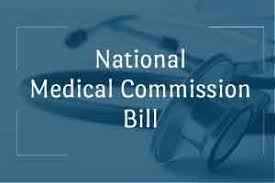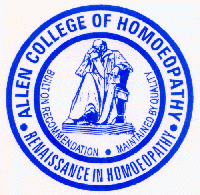As part of Homeopathy Awareness Week, we would like to raise awareness of twelve key points about homeopathy:
• In 2010, the UK Government Science and Technology Committee analysed the research into homeopathy and concluded that “homeopathic products perform no better than placebos.” This conclusion was backed up in 2015 in a review by the Australian National Health and Medical Research Council. With many homeopaths claiming their pills can treat serious illnesses, homeopathy is a dangerous placebo.
• When Penelope Dingle chose to take the advice of her homeopath husband and treat her rectal cancer with homeopathic remedies, the results were tragic – her death was, according to the coroner, the result of being “influenced by misinformation and bad science.” There are real dangers in using homeopathy in place of real medicine.
• Homeopathy is big business. The homeopathic industry is highly-profitable for companies like Boiron, Weleda and Nelsonʼs. The UK homeopathic market is estimated at £213m per year – comparable to the US ($300m), France and Germany (£400m each). All this for treatments which, despite hundreds of tests, have failed to show themselves to be any better than a sugar pill.
• In 2010, the NHS spent around £4 million on homeopathy – this money could instead be spent providing effective treatments, vital surgery and additional nursing staff. With NHS budgets under increasing pressure, wasting money by giving sugar pills to the sick is unjustifiable. According to the 2010 UK Government Science and Technology Committee: “The Government should stop allowing the funding of homeopathy on the NHS.”
• In 2012, Boiron settled a class action law suit over their popular ‘Oscillococcinum’ homeopathic remedy for colds and flu. Boiron claim the remedy is made from the heart and liver of a single duck – given that the ‘ultra-dilute’ remedy contains nothing at all of the original duck and generates over $20 million of revenue, it has to be the ultimate ‘quack’ remedy.
• Even now, groups such as Homeopaths Without Borders are currently offering ineffective homeopathic treatments in the developing world. Other homeopathy charities are known to dispense sugar pills to treat AIDS and the Ebola virus. Some of these groups are even promoted on the website of the World Homeopathy Awareness Organisation.
• In 2011, 1,700 people in thirty countries around the world took part in an international protest, each taking an ‘overdose’ of dozens of homeopathic pills to demonstrate that these worthless pills have no effect, and should not be sold as medicine.
• If only homeopathy is used, even relatively commonplace ailments can lead to severe consequences. Gloria Thomas was nine months old when her parents chose to treat her eczema exclusively with homeopathy. When she was finally admitted to hospital, she had developed sepsis, and died shortly after admission. Her parentsʼ confidence and faith in homeopathy ultimately led to this tragedy, and they were subsequently jailed for manslaughter.
• In 2006, a Newsnight investigation revealed that homeopaths told undercover reporters that homeopathic preparations could be used to prevent malaria – this advice was roundly condemned as dangerous and potentially life-threatening. Nevertheless, homeopaths still claim to treat malaria – the list of people harmed by choosing homeopathy instead of seeking out real medicine is continually growing.
• The Advertising Standards Authority has received over 150 complaints of false advertising and misleading claims made by homeopaths – homeopathic bodies seem unwilling or unable to stop their members making unsubstantiated claims.
• Many homeopaths regularly discourage conventional vaccination, instead promoting ‘nosodes’. These ineffective homeopathic ‘vaccines’ put children at risk of diseases such as measles, mumps, rubella and whooping cough.
• Patients have been warned against using homeopathy by the House of Commons, the British Medical Association, the NHS and the Royal Pharmaceutical Society of Northern Ireland. Mark Walport, Chief Scientific Advisor to the government, surmised homeopathic treatments were “nonsense” with “absolutely no medical benefit” – echoing the sentiments of the UKʼs Chief Medical Officer. Itʼs clear that leading medical experts agree: homeopathy simply does not work, and should not be used.
Source: https://www.homeopathyawarenessweek.org/





